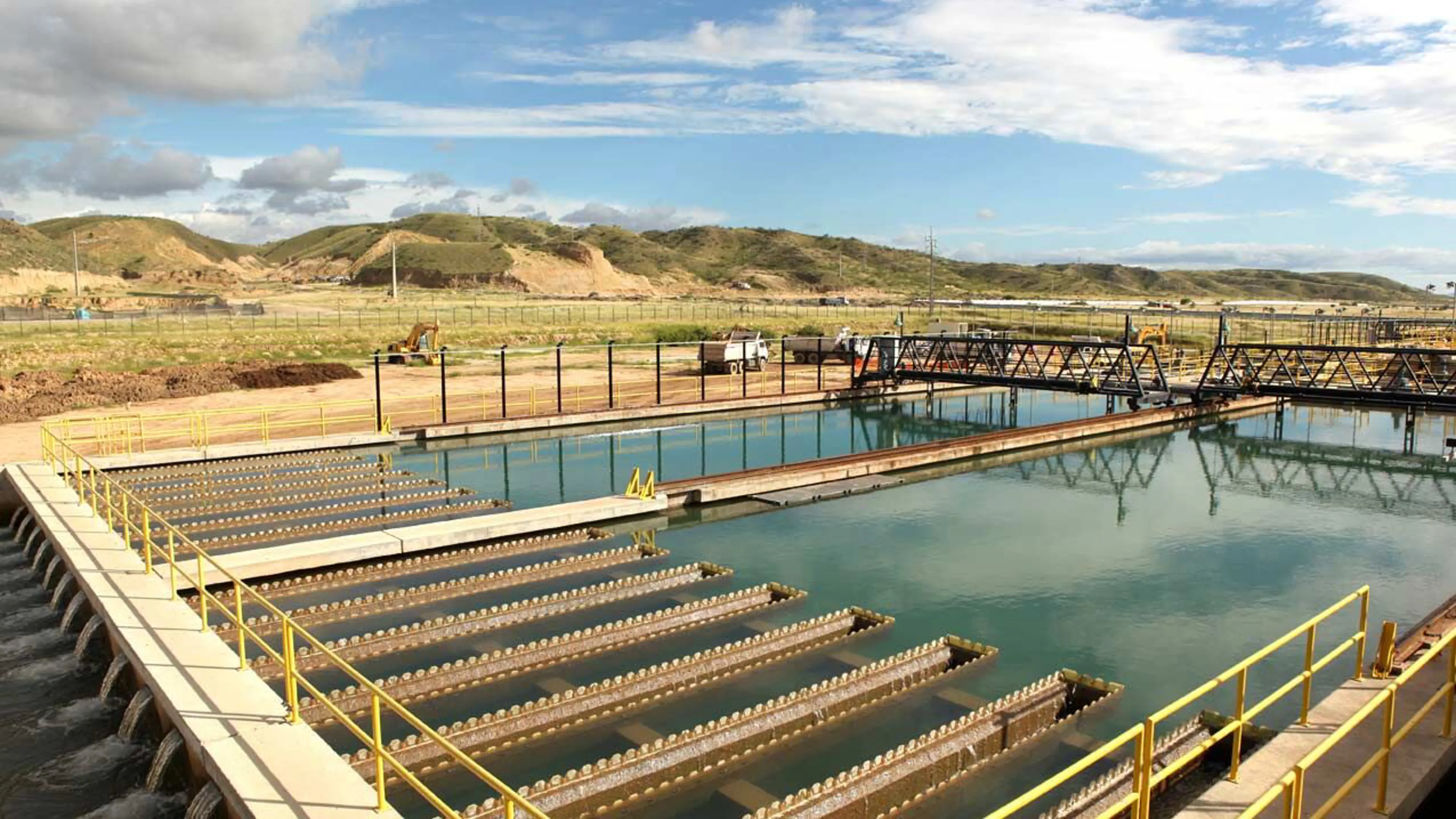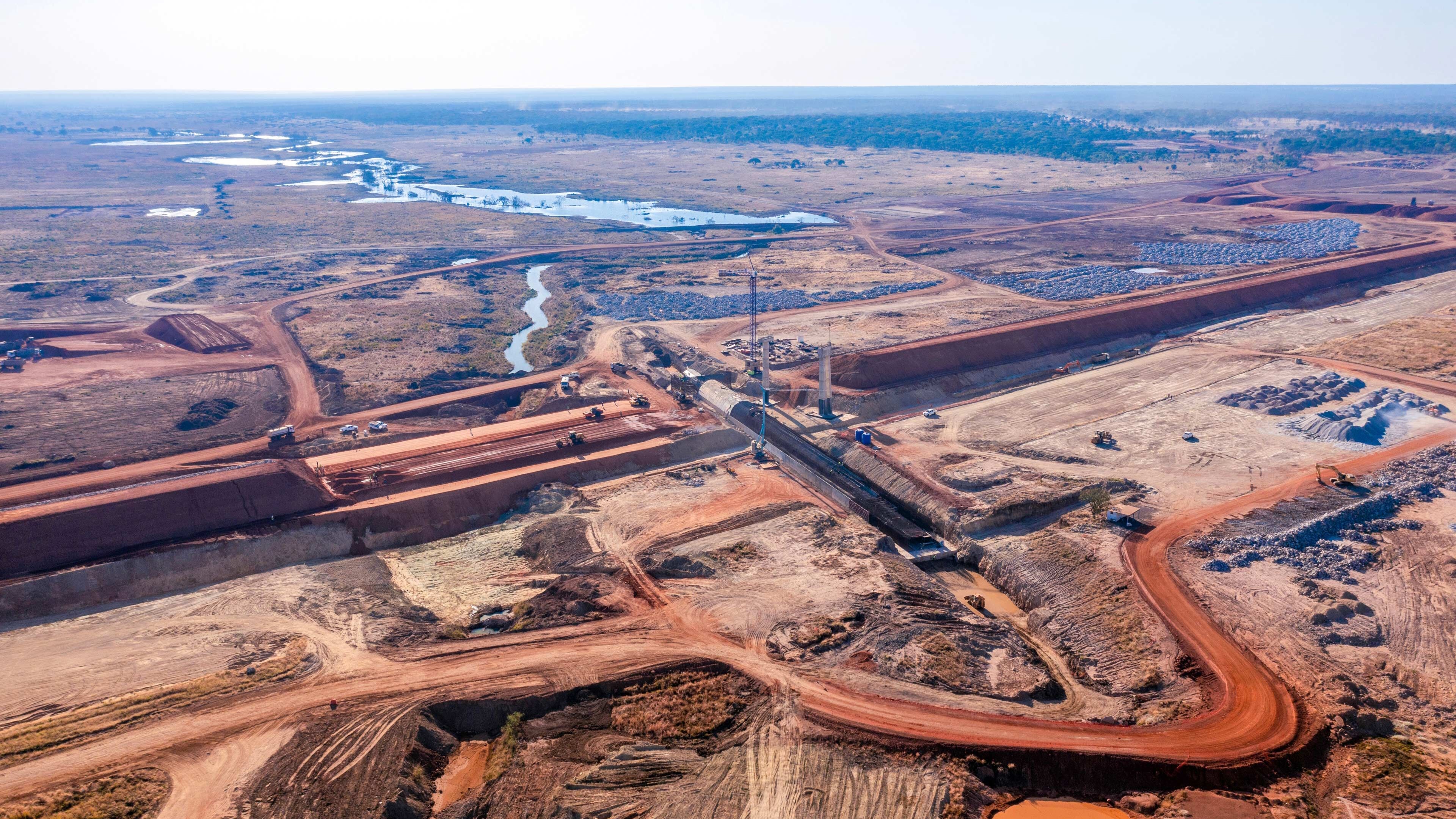Cabinda Refinery

Driving Angola’s energy future through strategic industrial investment
The Cabinda Refinery, Angola’s largest private midstream investment worth USD 1.3 billion, was inaugurated on 1 September 2025 by President João Lourenço. Developed through a partnership between Imbono and Sonangol, it marks a major step towards national energy independence and industrial diversification.
Total investment
Direct jobs
Local companies contracted
Barrels per day
Building the foundation for growth
Located in the province of Cabinda, the refinery has been designed with precision engineering and modern infrastructure to meet international performance and environmental standards. The project covers a significant footprint, including storage facilities, utilities, and power generation systems to ensure uninterrupted operations.
Every component — from pipelines to process units — was developed with efficiency and safety at its core. The design allows for modular expansion, meaning future upgrades can be implemented with minimal disruption. Local contractors and suppliers were engaged wherever possible, promoting skill transfer and economic participation within Angola.
Angola exported 90% of its crude oil but produced only 20% of its refined fuel needs locally. Limited domestic capacity increased import dependence and restricted economic diversification.
A partnership between Imbono (90%) and Sonangol (10%) created the first refinery built since independence. Commissioned in 2025, it produces 30,000 barrels per day in its first phase, doubling to 60,000 barrels per day in the second.
The refinery adds value to Angolan crude, reduces imports, strengthens foreign reserves, and generates thousands of jobs. It supports regional energy stability and long-term economic resilience.
Empowering people through skills and employment
At its peak, the construction phase employed more than 2,000 workers, with over 80% recruited locally. Training programmes have provided technical, safety, and managerial skills to hundreds of young Angolans, establishing a strong foundation for long-term employment within the energy sector.
Beyond direct employment, the project stimulates wider economic activity. Local businesses supply materials, logistics, and maintenance services. New opportunities are emerging in education, housing, and transport, reshaping the socio-economic landscape of Cabinda.



Strengthening national energy security
By processing domestic crude, Angola can now supply its own demand for petrol, diesel, and jet fuel. This reduces dependence on imports, stabilises pricing, and preserves foreign currency reserves. The refinery also positions Angola as a regional supplier of refined products, creating new export opportunities for neighbouring countries.
The strategic location in Cabinda offers direct access to maritime and overland routes, improving logistics efficiency and ensuring energy availability even in remote regions.

You must accept preferences cookies to view this video.
Alternatively, you can view the video at its source: https://vimeo.com/956202369
Environmental and operational excellence
From the outset, sustainability was built into the refinery’s design. Advanced emission-control systems, wastewater treatment units, and energy recovery technologies have been incorporated to reduce the facility’s environmental footprint.
The project complies with both Angolan and international environmental standards. Routine audits and monitoring ensure continuous improvement, reflecting Imbono’s commitment to responsible industrial growth.
We wanted this refinery to be built by Angolan hands and powered by Angolan expertise. It’s not just an industrial asset, it’s a catalyst for human progress
Community engagement and local impact
Imbono’s investment extends beyond infrastructure. Community development initiatives have been established to support local education, healthcare, and entrepreneurship. Partnerships with vocational schools and universities are helping to align technical training with industry needs, creating a pipeline of qualified professionals.
These efforts are part of a wider vision: to ensure that industrial growth translates into social progress.
The refinery is not an isolated project but a cornerstone of inclusive development.
The future
The next phase of the Cabinda Refinery will focus on expansion and innovation. Production capacity will increase to 60,000 barrels per day, and work is underway to integrate renewable energy systems to reduce emissions and improve efficiency. Plans for downstream petrochemical production will further enhance value creation, enabling Angola to move beyond fuel refining into advanced manufacturing.
In the longer term, Imbono aims to replicate this model in other strategic locations across Africa, supporting regional cooperation and shared prosperity.
Further projects

Ensuring reliable access to clean water for communities in Benguela.

Mitigating drought impacts and safeguarding water resources in Cunene.